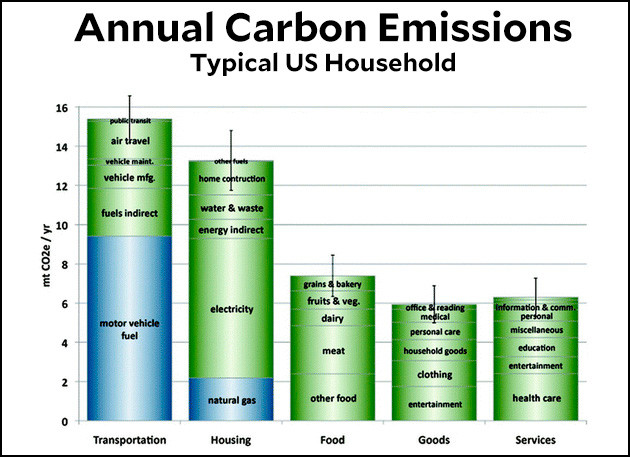Do You Believe in Climate Change? Really?
Looking for news you can trust?Subscribe to our free newsletters.
Dave Roberts says that centrists who say they prefer a “market-based” carbon tax to other, more regulatory climate change policies, are just trying to con everyone. The problem is not that a carbon tax wouldn’t work. The problem is that it would work only if it were huge—and if it were huge it would be no more politically palatable than all the other stuff the centrists are against.¹
Which illustrates that the vast majority of people who say they “believe” in climate change do not really understand it, haven’t internalized it, and are not *behaving as though* it is real. For some reason, that has depressed me more than anything in the past 2 miserable years.
— David Roberts (@drvox) February 19, 2019
I’m beating a dead horse here, but it’s really worth harping on this: Virtually nobody behaves as though climate change is real. That includes Dave and me and just about everyone reading this. We believe that climate change is an existential crisis for the planet, and the evidence supports that. But if it’s really that big a crisis, why don’t we act like it?
Let me put this in concrete terms. If you truly believe that climate change will broil the planet in the next 50 years or so, the very least you should do is immediately get rid of your car and adopt a vegan diet. How many of you have done that? How many of you have even considered it? Virtually none of you.² And like I said, that’s just a start. If you’re really serious, you should also toss out your air conditioning; only heat your house if temps are down in the 40s; never travel anywhere by plane; buy local food; and install rooftop solar. I’m going to let you keep your too-big house, but only because I’m a nice guy.
It seems as though I’m being facetious here, but I’m not. With current technology, this is what it would take from all of us to make a serious dent in climate change. And you’re not doing it. Neither am I. Nor, if we’re being honest, would we vote for anyone who we thought might force us to live like this. And that’s despite the fact that people like us are the most likely to support serious carbon reduction. As we all know, there are plenty of others who won’t even go so far as to support modestly higher CAFE standards or decommissioning of coal plants.
This should be a lesson to all of us: if we ourselves, who believe passionately that climate change is an existential threat, aren’t willing to make serious sacrifices to stop it, we should step back and ask why. Is it solely because it would be unfair for some of us to sacrifice like this when others aren’t? That’s certainly a handy excuse. Would we then be willing to support laws that forced everyone to live like this?
I very much doubt it. But why? After all, the hard part is already done: we believe in climate change. Think about this a bit and you’ll have a better understanding of why other people are unwilling to make even modest sacrifices to fight climate change.
¹Just to give you a sense of what we’re talking about, policymakers tend to talk about carbon taxes in the neighborhood of $30-50 per ton. That’s laughably inadequate. As Dave Roberts suggests, what we need are carbon taxes in the range of $300-500. A carbon tax of $100 equates to roughly $1 per gallon of gasoline, so this means a serious carbon tax would raise the price of gas by $3-5 per gallon. This is hardly inconceivable: Europeans already pay fuel taxes this high. And yet in America, you might just as well suggest that we murder puppies on live TV.
²If you’re planning to comment this, please, I’m begging you, don’t play stupid games. If you live in New York City you probably already don’t own a car. If you belong to PETA, you’re probably already vegan. Obviously there are people who don’t need a car in the first place and don’t care much about eating meat. I’m talking instead about the vast majority of us: people who love meat and own cars to get around. Giving that up would be a huge sacrifice, and it’s the scale of the sacrifice that I’m trying to communicate here.





